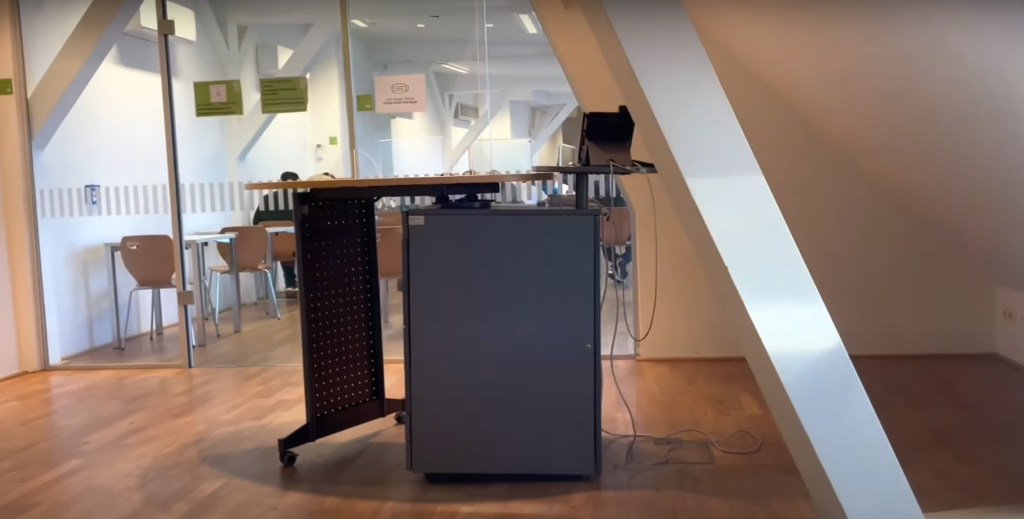In today’s post, I am going to talk about German language level A1 or simply “Start Deutsch A1” and how was my experience. In addition to that I will share resources and tips that will help you as well if you are preparing for the same or planning to appear. Before moving ahead, let me tell you that I have already uploaded a full video about the process, fees, preparation and exam day experience on YouTube. So if you prefer watching rather than reading then I would recommend the following video.
Since you are still reading, let’s start with the post and tackle some obvious questions like why prepare for A1, more importantly why should you learn German? Is it really necessary to learn German? Can you survive in Germany without knowing German? Answers to all these questions are not straightforward and vary from individual to individual. Let’s talk about the background of the German language first.
Should you learn German?
As I mentioned earlier, it depends solely on you. If you are someone who wants to stay in Germany for a short term then It doesn’t make sense to learn German. You can easily survive with simple greetings and broken German sentences. It won’t be difficult for you to buy groceries, go shopping, visit historical places or Dine-in in restaurants. In worse case scenario you have Google translator to save you as it did for several times for me in the past 😝.
However, you should definitely study if you intend to live in Germany for an extended period of time or if you are considering relocating there. Considering the fact that Germany is one of those nations that has not yet incorporated English into its culture. As a result, you are likely to hear, read, speak, and write German in your daily activities. All supermarket package labels, shopping malls, restaurant menu, almost all billboard advertisements, and mail that is forwarded to you are all written in German. The Post Office and some of the large banks solely provide services in German.
If that doesn’t convince you to learn German, know that an A1 certificate is required to apply for Permanent residence in case you are a blue card holder for 33 months. Also, If you want to join your spouse in Germany and your spouse doesn’t have a blue card then you must submit a German language A1 certificate as part of your visa process.
What is Start Deutsch A1?
Start Deutsch A1 is a basic German language exam. Getting certified shows that you are capable of understanding common short sentences and participating in informal talk. You can introduce yourself and talk about your whereabouts. You must feel at ease enquiring about other people. For instance, where do they reside? Who are they? And are capable of responding to similar questions. If the individual you are speaking to is willing to assist and speaks clearly and slowly, you can converse easily with them.
To obtain a certification you will have to enroll yourself in one of the exams organized by Goethe and Telc. Both follow Common European Framework of Reference for Languages (CEFR) and they are well known for German language certification. I appeared for the Goethe exam so I will be mostly talking about that in the following post.
Goethe has two variants for beginners. If you are a working professional then you should appear for “Start Deutsch”. If you are in the age group of 10-18 years you can enroll for “Fit in Deutsch”. So as you have guessed already, I appeared for Start Deutsch A1.
How to book an exam?
To book an exam with Goethe, you can visit this link and choose your slot in advance. At the time of writing this blog, the exam fee was €135. You will get your admit card via your registered email address one week ahead of the exam. This email will contain the schedule of the exam and the process of getting the hard copy of the certificate.
What is the exam pattern?
Start Deutsch A1 has 4 sections with total of 100 marks. Below are the sections and their order –
| Section | Duration | Marks |
| Lesen (Reading) | 25 minutes | 25 |
| Hören (Listening) | 20 minutes | 25 |
| Schreiben (Writing) | 20 minutes | 25 |
| Sprechen (Speaking) | 15 minutes | 25 |
There are few important points to that one should keep in mind –
- You will have to score minimum 60% to obtain the certificate
- There are no sectional cutoff marks
- All sections must be attempted in a single day
- Exam is offline and proctored. There are no online version available
- Exam result is valid lifelong unless specified specifically by your examination center
What happened on the exam day?
First half
My exam was scheduled for 10 AM and I reached half an hour early to the center. There was a waiting room. In case someone is accompanying you, they can wait there. Just 10 mins before the exam, the proctor checked my passport and told me to keep my belongings in a nearby locker. I was only allowed to carry a water bottle, a blue ball pen and a passport. No phone! No smart watches!

I was given a question booklet and an answer sheet. The proctor explained the whole process in German but slowly. If you are not able to understand the exam procedure or if you have any doubts, you can request them to explain it to you in English.
The exam kicked-off with the section “Lesen” where I had to read some paragraphs and answer multiple choice questions. I was allowed to scribble anything on the question paper. The second section was “Hören”, wherein the proctor played audio recordings on a speaker, placed at the front of the classroom. The volume and clarity of recordings were adequate. You will be able to listen even if you are sitting at the last bench. After this came “Schreiben” and there were two parts of it. First section was about to complete a job application form for someone and second was to write a letter to a friend and asking her about a good German course in Berlin. Please bear in mind that there are no gaps between these three exams. However before the last section i.e. “Sprechen”, you will get 1-3 hours. The length of the gap is decided by the examination center and you will be informed well in advance in your admit card email.
Second half
The Sprechen section was conducted with four candidates and two proctors. It was divided into three parts.
- First, they gave me a sheet with list of questions and I was supposed to introduce myself as per those questions.
- In second part, proctor will give you two flash cards with some word written. I was told to make questions with those word and ask my adjacent candidate and answer their questions as well. Those words were “Geschenk” and “Straße”.
- In the last part, I had to make imperative sentences with new pair of flash cards and discuss them with my adjacent candidate. But these cards had picture on them. I got pictures of “Kuchen” and “Geldautomat”.
How did I prepare for the exam?
It roughly took around 2 months for me to prepare for A1. My preparation was very much exam oriented. Means I used to practice all the four sections on a regular basis. Listening section was overwhelming for me at the beginning, so I was using earphones to listen to sample recordings. But gradually I started listening through the phone speaker by keeping it at a distance. In addition to this, I used to write my own flash cards. To achieve all this below YouTube channel and shows helped me a lot.
- Easy German
- Your German Teacher
- Nicos Weg A1
- Extr@ auf Deutsch
Apart from this I used Goethe Test app for mock tests and Chatterbug app to learn basic conversations. I would also recommend website like vhs-Learnportal and DW Learn German to practice and grow your vocabulary. In case you prefer books, then you can try “Netzwerk A1: Deutsch als Fremdsprache” coursebook and “Basic German – A Grammar and Workbook”
Summary
As you can see, preparing for A1 is not easy if you don’t know about proper resources and don’t follow a routine. Sometimes, you will feel lost among the articles and verb conjugation 😣. But it is not impossible to learn them and get a good score in the exam. I also went through the ups and downs and I would like to share some tips that I wish I knew beforehand.
- Going through Goethe original A1 wordlist.
- Create your own hand written flash cards. It will help you to memorize faster.
- Try to use simple German words and small sentences for your day to day activity. Maybe create your grocery list in German
- Don’t stress about Speaking section of the exam. Proctors are very patients and give you hints if you fail to understand any words.
- Greet and have small talks with your German neighbors.
- Use hand gesture while you are making imperative sentences during Sprechen section of the exam.
- Watch German lectures or videos on YouTube with German subtitles and switch playback speed to 0.75x.
With that we come to the end of today’s post. I hope you will find it useful. Till the next post, stay healthy and keep reading!

